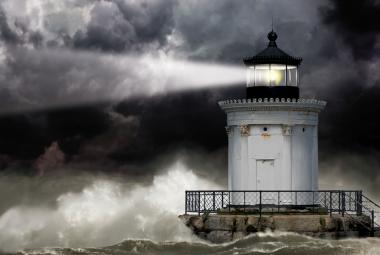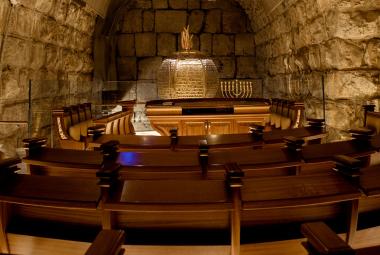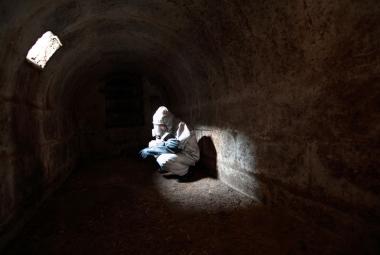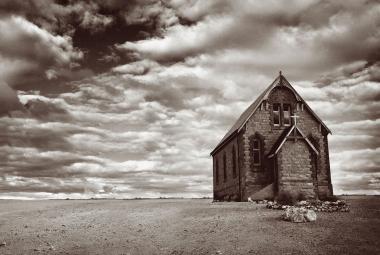Keep not thou silence, O God: Hold not thy peace…For, lo, thine enemies make a tumult…They have said, Come, and let us cut them off from being a nation…They are confederate against thee: The tabernacles of Edom, and the Ishmaelites; Of Moab, and the Hagarenes; Gebal, and Ammon, and Amalek; The Philistines with the inhabitants of Tyre; Assur also is joined with them: They have holpen the children of Lot. Selah.
Psalm 83:1-8 KJV
Psalm 83 describes a continuing conflict between Israel and its neighbors which climaxes with a final victory for Israel over its adversaries. It is a prayer in which Israel pleads for deliverance from a group of nations that are in union for the singular purpose of destroying her.1 Events over the past year have brought this Psalm into focus and make the prophecy contained in the Psalm seem all too real.
Everything that the experts say and everything that the activists and politicians have taken for granted for a generation…is really off the table…What’s been happening, first in Lebanon and then in Tunisia and now in Egypt and who knows further afield, suggests that new forces have been unleashed and we have no idea where they might lead and what new dynamics they might create.
Thanassis Cambanis,Middle East Correspondent2
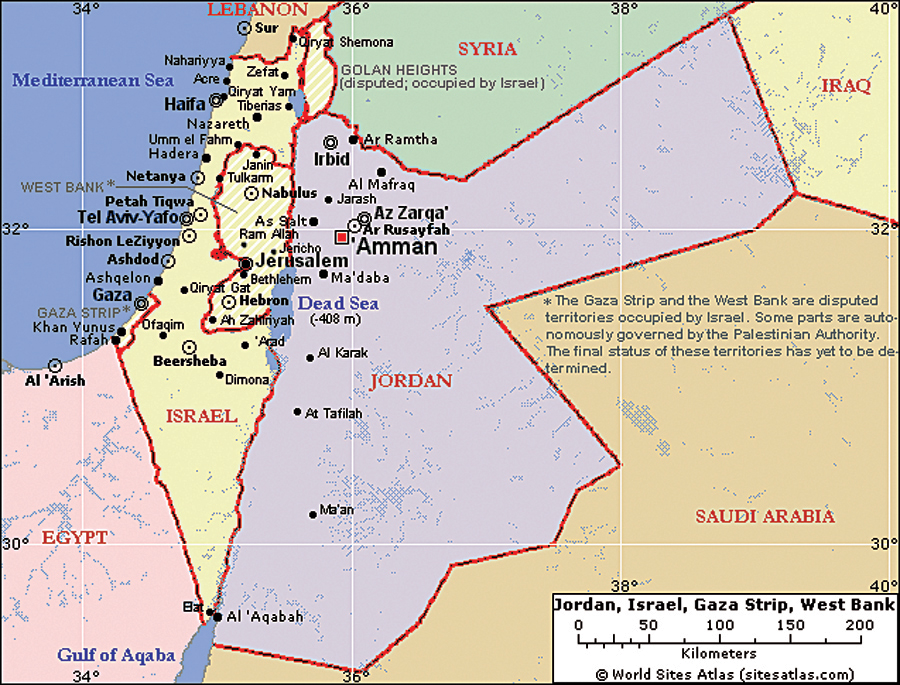
The Muslim Brotherhood
A recurring group that winds its way through the events surrounding Israel is the Muslim Brotherhood. Founded by Hasan al-Banna in 1928 in Egypt, the Muslim Brotherhood is the longest lasting Muslim movement in recent history. It was initially established as a religious outreach association to evangelize the message of Islam through preaching, social out-reach, and living an exemplary life. From its very inception the Brotherhood called on Egyptians to confront Zionism and spread social justice through Sharia Law. The Brotherhood’s motto is: “Allah is our objective; the Koran is our constitution, the Prophet is our leader; Jihad is our way; and death for the sake of Allah is the highest of our aspirations.”
When Colonel Gamal Abdel Nasser seized power in Egypt in 1952, he did not agree with the Brotherhood’s call for Sharia Law and viewed the Muslim Brotherhood as a potential threat. After a member of the Brotherhood attempted to assassinate Nasser in 1954, he outlawed the organization as a political entity and imprisoned thousands of its members, forcing others into exile.
While still outlawed as a political party, members of the Brotherhood started to run for elective office in 1984, first under the cover of legitimate parties and later as independents. The Brotherhood is a real force within Egypt with over 60% of Egyptians having a favorable view of the organization. From its roots in Egypt, the Muslim Brotherhood has fanned out throughout the Middle East and western countries as well. They have become a very loud voice for radical Islam in the world.
Lebanon
Located on Israel’s northern border, Lebanon is being used as a pawn in a high stakes game between Iran and the United States. Iran is afraid of a U.S./Israel military strike, and it needs to convince the United States as well as NATO that any attack on ancient Persia would carry a cost too high to consider. Iran has several options. One of them is to use its proxy, Hezbollah, to threaten Israel. With Lebanon in a state of chaos, Hezbollah can operate freely within the country. The Turks and Saudis are working to keep Iran in check, while the United States is trying to keep Israel from making any provocative moves towards Iran.
However, in the last couple of years, the United States has lost some of its influence with Israel as the Obama administration has distanced itself from God’s Chosen People. Hezbollah, meanwhile, remains free to further its goals, namely the destruction of Israel.
Syria
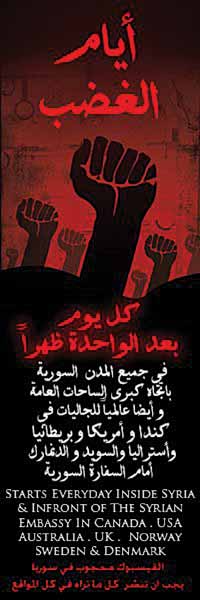 Syria is not as interested in the Palestinians as much as they are in Lebanon. Syria is trying to use Hezbollah to keep Israel off balance so that Syria has a free hand in Lebanon. So Syria is playing a side game with an anti-Israeli movement that isn’t Palestinian, while also maintaining relations with both factions of the Palestinian movement. This may not be enough for the Muslim Brotherhood in Syria. The Brotherhood used the Internet to call for demonstrations on February 4 and 5 for their own “days of rage” in various Syrian cities around the country. Approximately 16,000 people signed up on the Facebook page “The Syrian Revolution - 2011 Syrian revolt against President Bashar al-Assad.”3 The administration of President Assad is taking no chances and has announced reforms in the country while also preparing to quell any protests.
Syria is not as interested in the Palestinians as much as they are in Lebanon. Syria is trying to use Hezbollah to keep Israel off balance so that Syria has a free hand in Lebanon. So Syria is playing a side game with an anti-Israeli movement that isn’t Palestinian, while also maintaining relations with both factions of the Palestinian movement. This may not be enough for the Muslim Brotherhood in Syria. The Brotherhood used the Internet to call for demonstrations on February 4 and 5 for their own “days of rage” in various Syrian cities around the country. Approximately 16,000 people signed up on the Facebook page “The Syrian Revolution - 2011 Syrian revolt against President Bashar al-Assad.”3 The administration of President Assad is taking no chances and has announced reforms in the country while also preparing to quell any protests.
Syrian security forces have been placed on full alert and the army is moving into the cities in a visible show of force. They are also keeping a close eye on their border with Lebanon, concerned that the Muslim Brotherhood will try to spread their discontent to Brotherhood strongholds inside Syria. One attack scenario Israel is concerned about is a war in which Egypt and Syria would attack Israel, as they did in 1973, with a simultaneous intifada.
Jordan
The radical Muslim Brotherhood is continuing to threaten Jordan’s ruler King Abdullah II with protests trying to force the overthrow of the monarchy. In early February, The Islamic Action Front (the political wing of the Muslim Brotherhood) and other groups marched to the prime minister’s office and staged a sit-in to protest the appointment of a new prime minister. The Front is demanding reform of the country’s government, but refuses to join it. They are playing for “all the marbles,” a complete takeover of the government and rule by Sharia Law.
Pressure is also being applied in Jordan from the outside as well. Terrorists damaged a pipeline running from Egypt to Jordan, forcing a shutdown of the line. The attackers targeted the pipeline in the town of Lihfen in the northern Sinai, near the Gaza Strip.
On October 26, 1994, Prime Minister Yitzhak Rabin and Prime Minister Abdul-Salam Majali signed a Peace Treaty between Israel and the Kingdom of Jordan. It was only the second peace treaty Israel has signed since its independence. The peace treaty deals not only with an end to war, but also normalization. The peace treaty with Jordan addresses boundary demarcations, water issues, police cooperation, environmental issues and mutual border crossings. This treaty is now in jeopardy. While a clash of arms may not be imminent, to quell internal dissent the Kingdom may distance itself from Israel and retreat from some of its treaty commitments. Armed clashes may start to occur if the Muslim Brotherhood gains a significant role in the country. A sizable portion of the country is Palestinian and is a ready resource of fighters for any excursions into Israel.
Egypt
And I will set the Egyptians against the Egyptians: And they shall fight every one against his brother, and every one against his neighbour; City against city, and kingdom against kingdom...And the Egyptians will I give over into the hand of a cruel lord; And a fierce king shall rule over them, Saith the Lord, the LORD of hosts.
Isaiah 19:2–4, KJV
The story currently filling the media is the unrest in Egypt. The state of affairs being played out in Egypt has occurred in history many times before. The French Revolution set the model and the same series of circumstances have occurred time and time again. A country under an authoritarian ruler (i.e., king, tsar, shah) starts to develop a middle class. The middle class becomes dissatisfied under the current regime and starts to agitate for change. The ruler is finally deposed and a representative government is installed. (Why this scenario did not play out in the United States, Canada, and Australia among other countries is the subject for another time.)
The “revolution” then runs into two problems: 1) the largest segment of the population does not care so much about ideology; they care about, as Lenin said, “peace, bread, and land”; 2) a highly motivated group of fanatics will be ready to seize power in the name of their own utopia. Thus, Russia went from rule of the Tsars, to a liberal provisional government, to the Bolshevik (Communist) government. Germany progressed from the Kaiser to the Weimer Republic, to the Nazi Party. The Shah of Iran was replaced by a provisional government promising democratic reforms to an authoritarian form of government under the Ayatollah Khomeini.
The same scenario may also play out in Egypt. Mubarak has left office and is currently at his mansion in Sharm el-Sheikh on the southern tip of the Sinai Peninsula, protected by three battalions of soldiers. A military council is currently ruling the country, with Vice President Oman Suleiman’s role in the government open to debate. The military council has suspended the constitution and has promised elections within the next six months. The hope in the major capitals in the Western world is that with open elections will come a secular, civilian government wanting to maintain the status quo.
A secular government may run the country for a short time, but it may prove to be too moderate and be pushed aside by the Muslim Brotherhood. The Muslim Brotherhood would quickly turn the country against Israel.
Israel as the Target
Israel is now facing its most dangerous scenario since the 1967 War. There is a Hezbollah-led government in Lebanon, the Muslim Brotherhood in Syria and Jordan, and an Egypt ready to jettison its secular government and embrace an Islamic form of government in the mold of Iran.
A repeat of the 1967 war would be a given but for one fact: Israel is estimated to have 200 nuclear weapons and is ready to use them. If Israel faced either a nuclear attack, or a conventional attack they could not win, they would exercise “The Masada Option”—the destruction of their enemies, even at the price of their own country. Damascus, The Aswan Dam in Egypt, and Tehran would be obliterated. A coordinated attack on Israel from its radicalized neighbors could trigger just such a response. A leading member of the Muslim Brotherhood Muhammad Ghannem, said:
After President Mubarak steps down and a provisional government is formed, there is a need to dissolve the peace treaty with Israel...The Egyptian people [should] prepare for war against Israel...The Suez Canal should be closed immediately, and the flow of gas from Egypt to Israel should cease in order to bring about the downfall of the Mubarak regime…The people should be prepared for war against Israel, and the world should understand that the Egyptian people are prepared for anything to get rid of this regime.”4
The Middle East is caught up in a conflagration that is literally of Biblical proportions. The countries surrounding Israel are aligning against her, and Iran is poised to be the dominant power in the region.
The Book of Zechariah predicts just such a scenario in Chapter 12, when the Holy Spirit through the prophet writes:
Behold, I will make Jerusalem a cup of trembling unto all the people round about, When they shall be in the siege both against Judah and against Jerusalem. And in that day will I make Jerusalem a burdensome stone for all people: All that burden themselves with it shall be cut in pieces, Though all the people of the earth be gathered together against it… In that day will I make the governors of Judah like an hearth of fire among the wood, And like a torch of fire in a sheaf; And they shall devour all the people round about, on the right hand and on the left: And Jerusalem shall be inhabited again in her own place, even in Jerusalem.
Zechariah 12:2-3, 6, KJV
Only God knows the time and the place, but events in the Middle East point to a fulfillment of prophecy. Now, more than ever, we need familiarize ourselves with the prophecies of Isaiah 17 and 19, Jeremiah 49, Psalm 83, and Ezekiel 38 and 39.
Notes:
1. http://www/bible411.com/currentevents/cd060807.htm.
2. http://www.npr.org/2011/02/02/133279945/hezbollah-israel-and-egypt-what-happens-next.
3. http://www.facebook.com/event.php?eid=131401903594062&index=1.
4. The Jerusalem Connection, February 4, 2011

